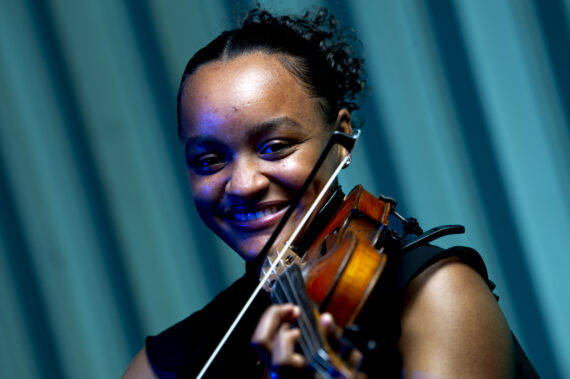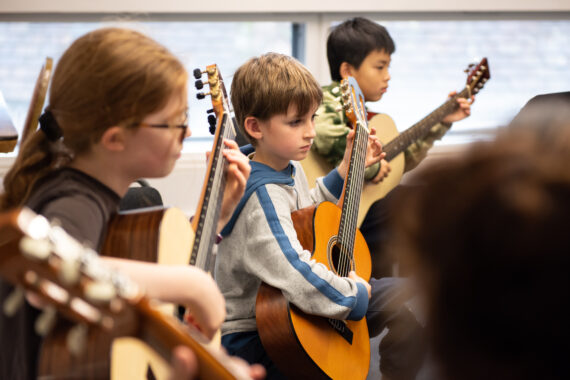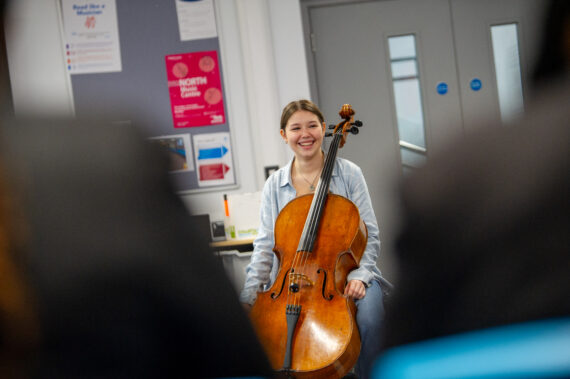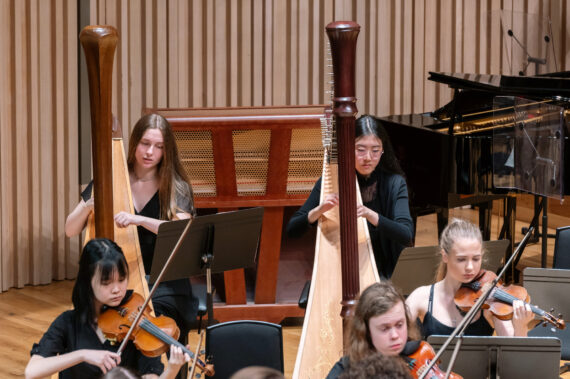Strings
Violin - Viola - Cello - Double bass - Harp - Guitar - Viola da Gamba
Our String Department has had incredible success over many years, and former string students are highly regarded as players throughout the world. There is a strong emphasis on developing students’ playing to the highest possible technical level, while developing musical skills through solo performance, chamber music and orchestral repertoire.
We have strong links with the Barratt Due Institute of Music in Oslo, and with a diverse array of international artists who regularly visit the School to lead recitals and masterclasses. Visiting artists include alumnus Guy Johnston, winner of the BBC Young Musician competition in 2000, violinists Alf Richard Kraggerud, Alexander Sitkovetsky, guitarists Craig Ogden and Gary Ryan, and many more.
All students receive 1-2 hours of individual lessons per week, and are encouraged to rehearse regularly with their individual accompanists to prepare for performance. Opportunities to play to an audience begin with weekly performance classes, where students receive helpful feedback from staff and peers; daily Lunchtime Concerts for a public audience; and a busy programme of recitals across the region which take place throughout the year.
I changed from violin to viola shortly after joining Chetham’s. As a viola player in the middle of the orchestra, it has given me a chance to hear and experience the music in a different way and Chets has supported me all the way through this transition – Mischa, viola, year 6
All string players are involved in one or more chamber ensembles, either within their own department or alongside non-string players. These groups enjoy weekly lessons and opportunities to perform within and beyond the School. Middle and Sixth Form players are involved in the School’s two orchestras, whilst younger string players enjoy playing with Violetta and Serenata String Ensembles, who take part in both performance and Outreach events.
String players are also welcome to participate in jazz and baroque projects, contemporary music ensembles, and in premiering new compositions by fellow students. Every string players also takes music as an academic subject and learns a second study instrument – usually, but not exclusively, piano – to give them a strong grounding in harmonics and to prepare them fully for further study.




Chetham’s Symphony Orchestra performance, October 2023 at Stoller Hall, Manchester




